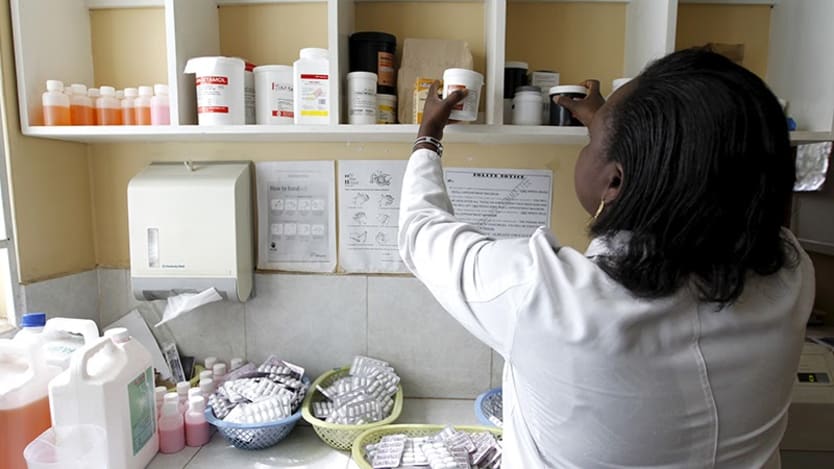Cabotegravir also works for women, HIV prevention study reveals

MANILA — An investigational injectable drug is found to be effective in preventing HIV among women, according to an interim analysis of a study published Monday, providing new options on HIV prevention for women and girls, who account for 48% of all new HIV infections in 2019.
Study HPTN 084, led by the HIV Prevention Trials Network, found cabotegravir, a long-acting injectable developed by ViiV Healthcare, was 89% more effective than the standard oral preexposure prophylaxis tenofovir/emtricitabine combination pills widely used for HIV prevention.
The high effectiveness of the drug led an independent data safety monitoring board to recommend an early stop to the study, which is being conducted in 20 sites across seven countries in sub-Saharan Africa, involving over 3,200 women participants.
Can this new injectable deliver on its promise to reduce HIV transmission?
Clinical evidence shows that cabotegravir, an investigative injectable drug for HIV prevention and treatment, is 66% more effective than daily oral PrEP. Experts explain what barriers stand in the way of the drug's rollout.
A separate study on cabotegravir’s effectiveness in preventing HIV among men and transgender women also ended early in May for the same reasons. In that companion study HPTN 083, cabotegravir was 66% more effective — the effectiveness range was 38% to 82% — than the oral PrEP.
Young women are especially vulnerable to HIV infections. Every week, an estimated 5,500 young women aged 15 to 24 years old get infected with HIV. In sub-Saharan Africa, young women in this age range are twice as likely to be living with HIV than men. Girls also account for 5 in 6 new infections among adolescents aged 15 to 19 years old in the region, according to latest data from UNAIDS.
Matteo Cassolato, technical lead for HIV prevention at Frontline AIDS, told Devex over email that results of the study mean there is not only a new method of prevention, but “potentially a better method for women and other groups who may struggle with adhering to daily pill treatment long-term.”
“If approved, long-acting cabotegravir will provide an option that reduces the number of dosing days from 365 to six,” said Dr. Kimberly Smith, head of research & development at ViiV Healthcare. The injectable is administered every two months, as opposed to daily oral pills.
Cassolato argued however that to reduce new HIV infections among women and girls, comprehensive multisectoral approaches that go beyond the health sector are needed — those that address issues of gender inequality and other harmful gender norms that severely limit women and girls’ ability to use HIV prevention options like PrEP.
“These results are exciting, but it’s important to acknowledge they are a starting point.”
— Matteo Cassolato, technical lead for HIV prevention, Frontline AIDSViiv Healthcare will engage with global regulators in the coming months to prepare for regulatory submissions using results from both HPTN 083 and HPTN 084 studies on cabotegravir as a PrEP.
Cabotegravir, as a single drug, has not received any regulatory approval to date either for HIV treatment or HIV prevention. The only known regulatory approval of cabotegravir was in Canada, where oral tablets of the drug and its injectable form — which is combined with Johnson & Johnson’s rilpivirine — received its first regulatory approval early in 2020 for HIV treatment.
But apart from regulatory approval, countries will have to deal with delivery, access, and uptake of the drug — challenges that experts anticipate.
“These results are exciting, but it’s important to acknowledge they are a starting point. There are now important real world implementation issues to address, from assessing how acceptable the new drug and its delivery method are, to understanding how HIV prevention programmes would need to be adjusted so that this method can be delivered safely and effectively to women and girls,” Cassolato said.
Another potential issue is how to avoid drug resistance for those who decide to discontinue using the injectable drug.
“It will still take some time for injectable cabotegravir to become available, but it is hopeful.” Cassolato added.
Asked regarding affordability of cabotegravir for HIV prevention, Smith said in an email that ViiV Healthcare, “does not expect to profit from sales of its marketed products to public HIV programmes and international donor agency programmes” in low-income countries and least-developed countries, including in sub-Saharan Africa.
“On this basis, long-acting injectable cabotegravir for HIV prevention will be offered at a non-profit price in these countries to enable countries with the greatest barriers to affordability to be sustainably supplied at the lowest possible prices,” she told Devex.
Detailed results of the HPTN 084 study will be presented at a scientific meeting in 2021.
Search for articles
Most Read
- 1
- 2
- 3
- 4
- 5








